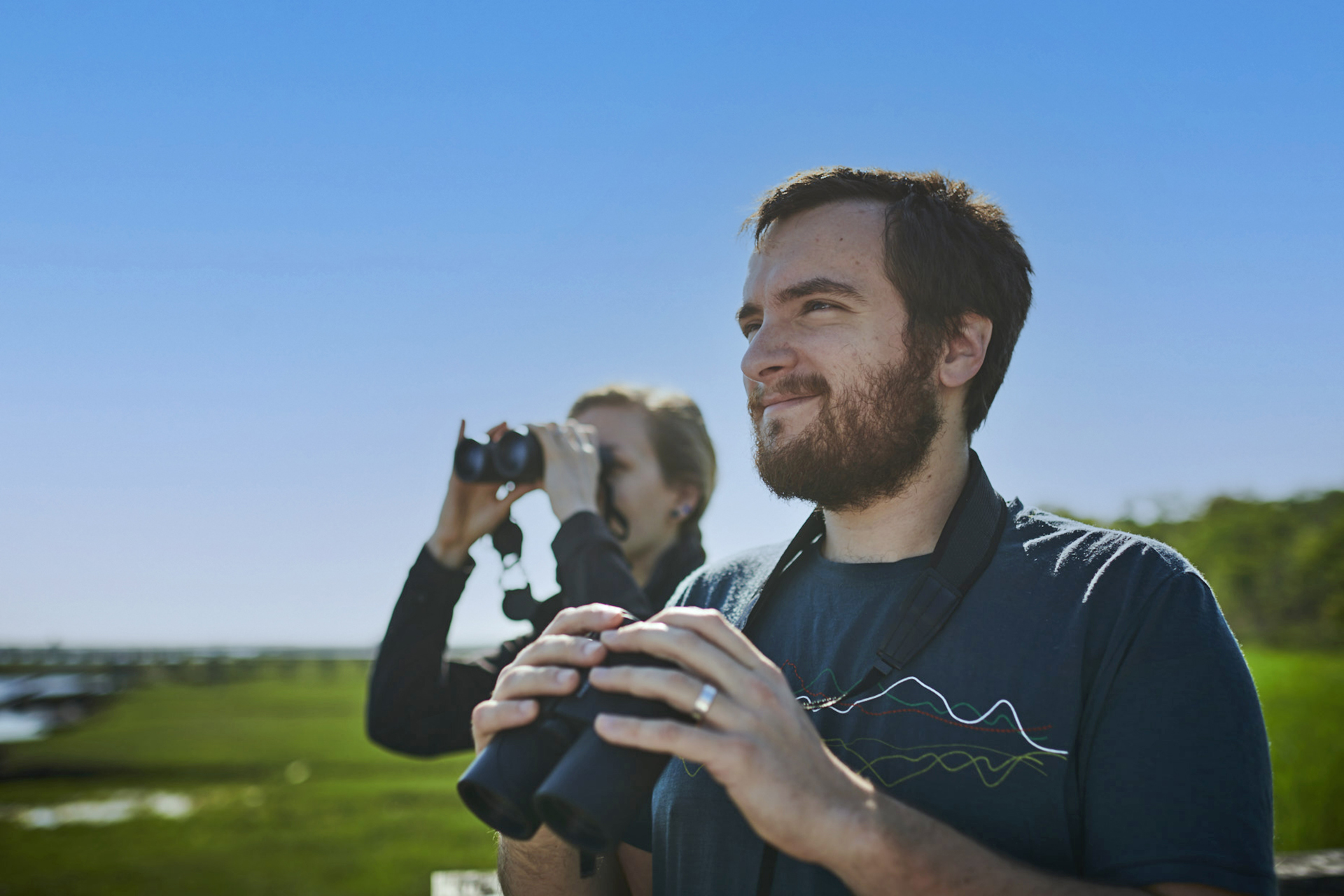Bird-a-thon
Bird-a-thon Guidelines & Rules
During Bird-a-thon weekend, all teams will compete head-to-head by fundraising and by attempting to identify the greatest number of bird species in 24 hours. Find everything you need to know about being part of Bird-a-thon.
Changes from Past Years
- There is no limit on team size.
- Participants may bird alone.
Observations
- All species counted must be observed within Massachusetts (including ocean waters) between 6:00 pm ET on Friday, May 10, and 6:00 pm ET on Saturday, May 11, 2024.
- Birds may be identified by sight or sound.
- The Bird-a-thon 2024 Species Checklist is the official checklist for this event. Sightings of species listed in italics on this list or species not on this list must be confirmed by the Bird-a-thon Birding Judge. To confirm these observations, the Team Captain should submit the observer’s name, phone number, e-mail address, and a brief description of the encounter to [email protected] by May 17.
- American Goshawk, King Rail, Golden-winged Warbler, Cerulean Warbler, and Long-eared Owl are particularly sensitive to disturbance and should not be sought out during Bird-a-thon. These species are marked in bold on the Official Species Checklists for Bird-a-thon and will all be considered “free birds” that everyone will receive points for.
All Participants
- Must follow the Birding Code of Ethics.
- May not use playback recordings.
- Must participate on only one Bird-a-thon team.
- Must participate in only a single statewide OR County Cup OR Sitting Duck award effort within their team. Team Captains are responsible for identifying which team members will be competing for specific awards. Birds recorded by team members competing for one competition may not be counted toward another competition.
Team Captains
- Must submit the team's official roster to [email protected] by May 6.
- Must identify which team members will be competing for specific awards. A team may establish multiple sub-teams to compete separately for the statewide birding awards and/or to focus on one or more counties for the County Cup award and/or one or more locations for the Sitting Duck award.
- Must submit final species checklists to [email protected] by May 17.
- Must submit final fundraising totals to [email protected] by May 31.
County Cup Rules
The County Cup is awarded to the team that counts the highest percentage of likely birds within a single Massachusetts county. Each county has been assigned a Par Number (listed below). The Par Number represents a count of all species considered possible to observe in each county during Bird-a-thon. Each county Par Number does not include rarities or species highly unlikely to be encountered in that part of the state, however such species may count toward the team’s County total if observed. A team’s County Cup score equals County Total/County Par Number. The team with the highest County Cup Score wins the County Cup.
2024 County Birding Par Numbers:
Barnstable County = 163
Berkshire County = 142
Bristol County = 169
Dukes County = 139
Essex County = 185
Franklin County = 136
Hampden County = 134
Hampshire County = 142
Middlesex County = 146
Nantucket County = 131
Norfolk County = 159
Plymouth County = 183
Suffolk County = 125
Worcester County = 146
Sitting Duck Rules
The Sitting Duck Award goes to the team that counts the most bird species from a fixed location.
- Observations can only be made from within a fixed 25-foot (diameter) circle.
- Multiple team members can contribute observations from each circle.
- If a bird is seen or heard from within the circle but is too distant to identify, a team member may leave the circle to confirm the bird’s identity. However, the newly identified species cannot be counted until it is observed again from within the circle.
- Each Team may have multiple Sitting Duck circles located throughout the state. Team Captains will determine which of their circles had the highest species count and will submit that top list to the Birding Judge to determine the overall Sitting Duck Award winner.
Stay Connected
Don't miss a beat on all the ways you can get outdoors, celebrate nature, and get involved.



